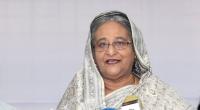 At a civic reception in Kolkata, Bangabandhu said: “Not a single non Bengali was killed after liberation of Bangladesh in acts of vengeance.”
At a civic reception in Kolkata, Bangabandhu said: “Not a single non Bengali was killed after liberation of Bangladesh in acts of vengeance.”
On Feb 7, he had several meetings in Kolkata. After three levels of meetings, Bangabandhu Sheikh Munibur Rahman and Indian prime minister Indira Gandhi reached a consensus on several international issues.
The head of National Awami Party NAP, Abdul Wali called on the Pakistani president to grant recognition to Bangladesh.
Once Bhutto recognizes Bangladesh, he can start talks with India to repatriate the prisoners of war, said Abdul Wali. At a civic reception in Kolkata, Bangabandhu said: “One of the four pillars on which Bangladesh is built is secularism; we will not differentiae on the basis of faith.”
At a civic reception in Kolkata, Bangabandhu said: “One of the four pillars on which Bangladesh is built is secularism; we will not differentiae on the basis of faith.”
Though the Bangladeshis were victims of barbarism by West Pakistanis, then did not exact any retribution against those who collaborated with the invading force, said Bangabandhu.
He also called on all non Bengalis to mix with the locals and live as Bangladeshis.
Bangabandhu also said that Bangladesh is determined to form a repression free society; we will not allow the rich to get richer or the poor to become poorer. He also underlined with gratitude the courage of the Indian journalists who presented the suffering of the people of Bangladesh to the world at the risk of their lives.
He also underlined with gratitude the courage of the Indian journalists who presented the suffering of the people of Bangladesh to the world at the risk of their lives.
At the Bangladesh mission Bangabandhu addressed the workers, saying: “It’s difficult to attain and preserve independence and so I ask you to work diligently.”
The student leaders of the time Nur e Alam Siddiqui, A SM Abdur Rab, Abdul Kuddus Makhon, Shahjahan Siraj, said: “The education of the country has to be aimed towards the masses and without division. The education policy must provide chance to people from all classes.”
Student leader Abdul Kuddus Makhonm said: “No one can be sent abroad for education; that money should be spent to build schools in Bangladesh and all students must take military training when they are in class nine and ten.”
 National
National
41443 hour(s) 19 minute(s) ago ;
Afternoon 02:13 ; Wednesday ; Jul 09, 2025
Bangabandhu thanks Indian press for their 1971 role
Send
Udisa Islam
Published : 21:00, Feb 07, 2020 | Updated : 14:03, Feb 08, 2020
Published : 21:00, Feb 07, 2020 | Updated : 14:03, Feb 08, 2020
0 ...0 ...
/tf/
Topics: Top Stories
- KOICA donates medical supplies to BSMMU
- 5 more flights to take back British nationals to London
- Covid19: Rajarbagh, Mohammadpur worst affected
- Momen joins UN solidarity song over COVID-19 combat
- Covid-19: OIC to hold special meeting
- WFP begins food distribution in Cox’s Bazar
- WFP begins food distribution in Cox’s Bazar
- 290 return home to Australia
- Third charter flight for US citizens to return home
- Dhaka proposes to postpone D8 Summit
Unauthorized use of news, image, information, etc published by Bangla Tribune is punishable by copyright law. Appropriate legal steps will be taken by the management against any person or body that infringes those laws.
Bangla Tribune is one of the most revered online newspapers in Bangladesh, due to its reputation of neutral coverage and incisive analysis.
F R Tower, 8/C Panthapath, Shukrabad, Dhaka-1207 | Phone: 58151324; 58151326, Fax: 58151329 | Mob: 01730794527, 01730794528


